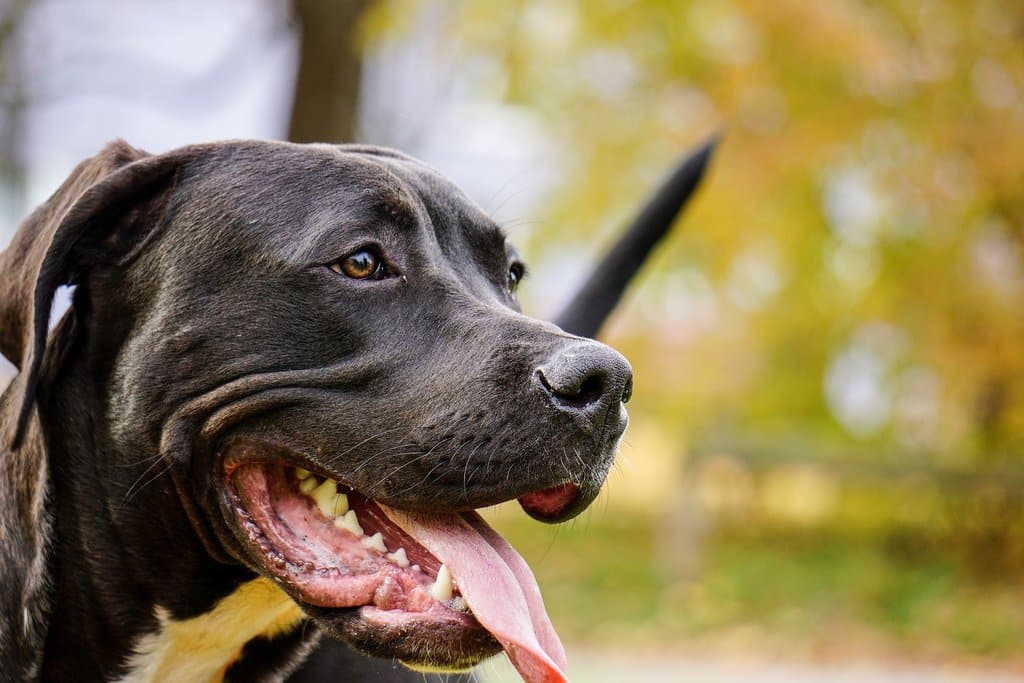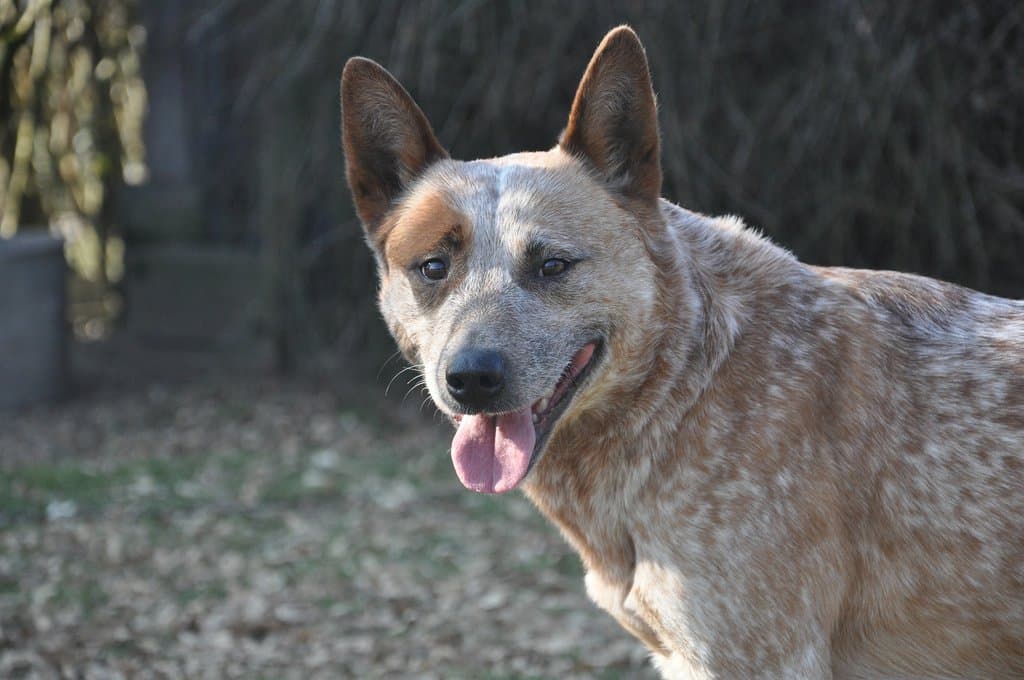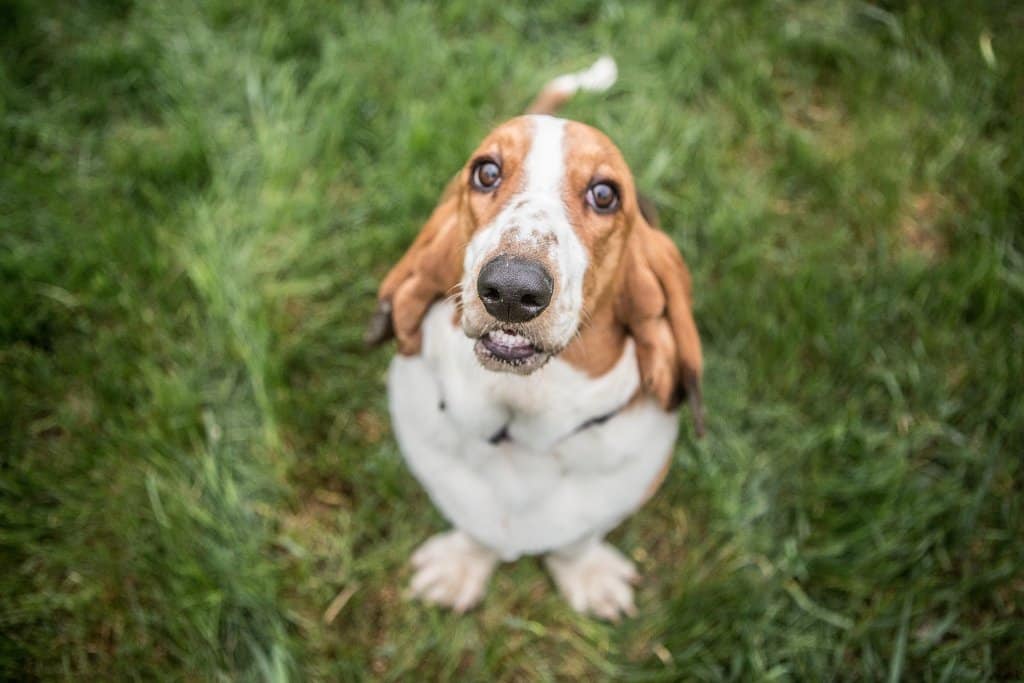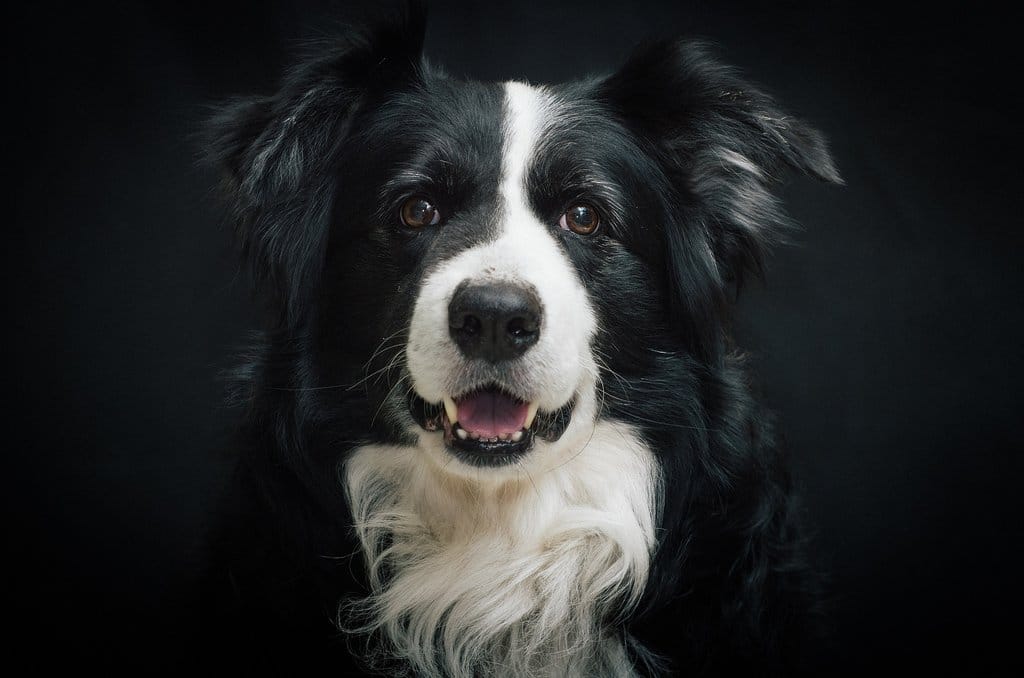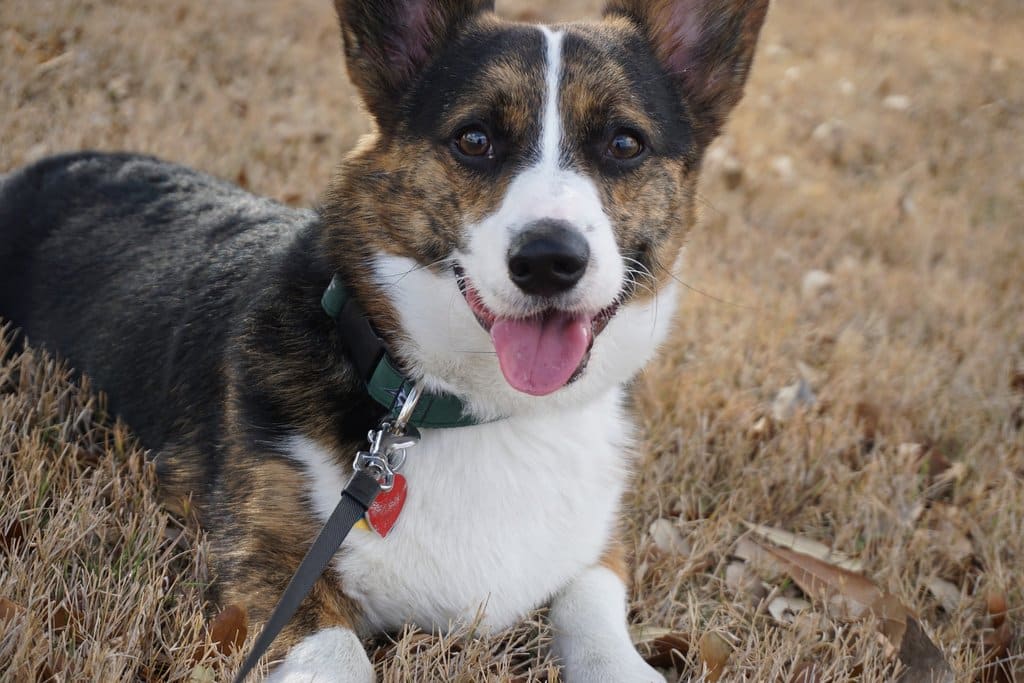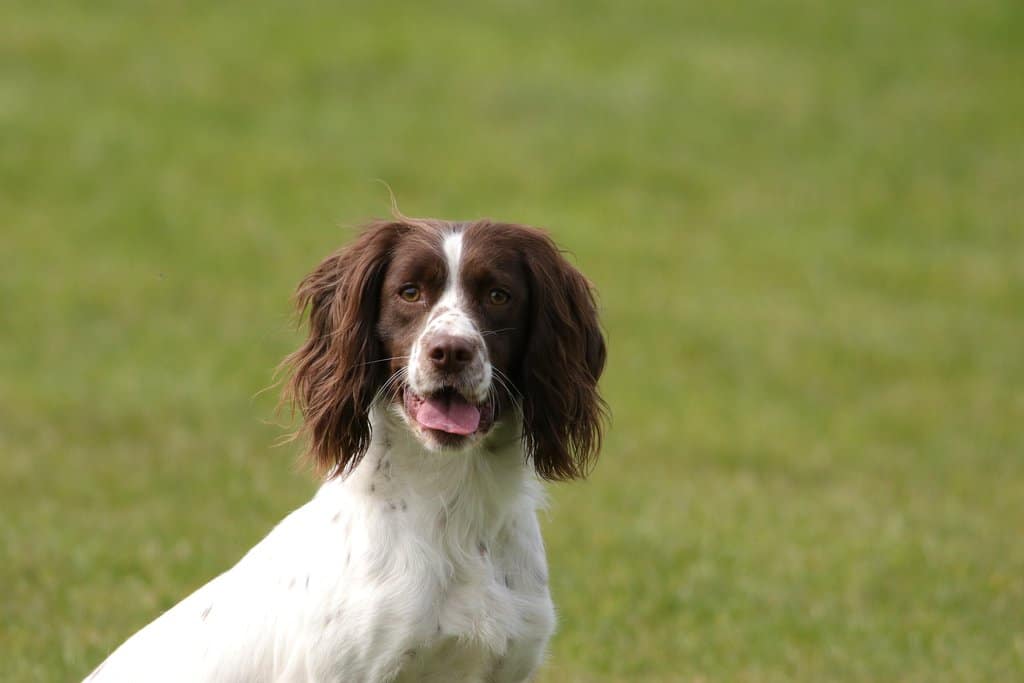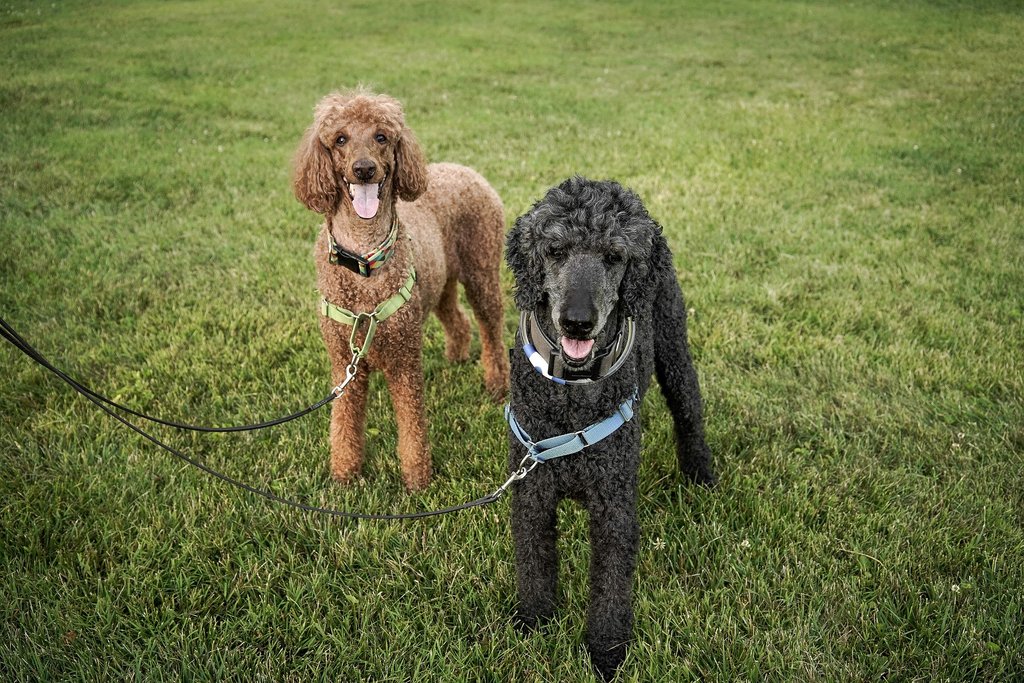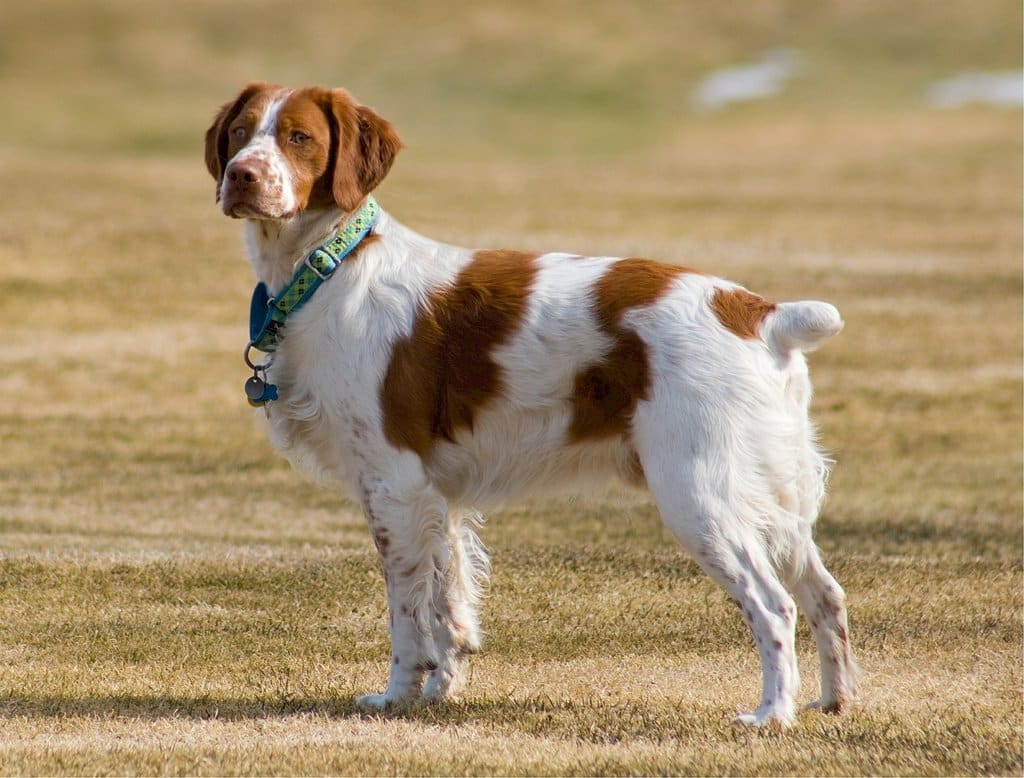Your dog has unique nutritional needs.
So what is the best food for medium sized dogs?
Medium-sized dogs make perfect companions, whether you’re looking for a farmhand or a friend.
Neither too small nor too big, medium-sized dogs fit perfectly into our lives. But just like humans, each dog breed is different, with different nutritional and digestive needs. And to take advantage of that, you want to feed your dog the best food for them…not a generic house pet.
In this article, we’ll address the top 10 most common medium breeds and give our recommendations for the best food for medium sized dogs.
It’s important to note, however, that all meal suggestions are based on a standard, healthy dog. If your dog is overweight or suffering from a health condition, his or her needs will be different.
1. American Pit Bull Terrier
Also known as the American Staffordshire Terrier, or simply as “pit bulls,” these dogs have unfairly gained a bad reputation as vicious fighters. The truth is that, if they haven’t been trained to be violent, pit bulls make loving and loyal companions and are sometimes known as “nanny dogs.”
The American Pit Bull Terrier as we know it was developed from an English breed called the Staffordshire Bull Terrier. They were brought over from England to Florida in the late 1800’s where they were fed a diet much like those of Florida’s native settlers: poultry, rice, venison, and fish. High fiber, low carb diets are best.
Rick’s Dog Deli Meal Match: Midwestern Chicken
2. Australian Cattle Dog
As its name suggests, the Australian Cattle Dog originated in Australia’s outback, where it was essential for herding sheep. As a result, they have very high stamina and a caloric need to match.
Low-fat, high-fiber diets are best for this breed. While the original Cattle Dogs dined on kangaroo, your family pet will thrive on beef, eggs, brown rice, and vegetables.
Rick’s Dog Deli Meal Match: Western Beef
3. Basset Hound
Basset hounds’ short legs and loose skin can sometimes make them look overweight, which can cause their owners to underfeed them. In fact, these breeds rarely have weight issues. Far more important is making sure they receive complete and balanced nutrition from an easily digestible source.
For the Basset hound, this includes a diet of poultry, eggs, brown rice, and vegetables.
Rick’s Dog Deli Meal Match: Midwestern Chicken
4. Border Collie
Border Collies are the ultimate “working dog,” bred for intelligence and performance rather than a certain look. They have been known to cover 100 miles in a single day without a break.
All this activity requires a diet with a high carb to protein ratio. The best dog food ingredients for Border Collies are corn, wheat, potatoes, lamb, fish, and poultry.
Rick’s Dog Deli Meal Match: Pacific Whitefish Blend
5. English Bulldog
Bulldogs are known for their short, stocky build and strong willed temperaments. Their bodies develop more slowly, so they should be fed like a puppy until they are 30 months old.
Their diet should have a high carbohydrate to protein ratio, such as beef, potatoes, and vegetables.
Rick’s Dog Deli Meal Match: Western Beef
6. Cardigan Welsh Corgi
Not to be confused with their “royal” cousins (the Pembroke Welsh Corgi), the Cardigan Welsh Corgi is a faithful babysitter and hunter with a long history. They were originally used to chase rather than round up cattle, so you’re more likely to see Cardigan Corgis chasing away squirrels than nipping at children’s heels.
Their diet in their native Wales would have included beef, fish, carrots, and potatoes.
Rick’s Dog Deli Meal Match: Western Beef
7. English Springer Spaniel
The English Springer Spaniel has origins in both Spain and Britain, and requires a different amino acid profile than most other dogs.
Because wild poultry has different amino acids than the domestic chicken, the Springer spaniel’s diet requires more than just chicken for a complete diet. The ideal food should include chicken and fish, eggs, brown rice, and vegetables.
Rick’s Dog Deli Meal Match: Midwestern Chicken
8. Standard Poodle
Aside from the obvious size difference, there is a world of difference between Miniature and Standard Poodles. The Standard Poodle requires high amounts of phenylalanine and minerals. Without these essential nutrients, you might see loose gums and a discolored, loose coat.
Fish, poultry, and pork make the best diet for a Standard Poodle.
Rick’s Dog Deli Meal Match: Carolina Pork & Beef
9. Brittany Spaniel
The Brittany Spaniel might bear a striking resemblance to the English Springer Spaniel, but their backgrounds and nutritional needs could not be more different. The Brittany Spaniel was developed by French nobles in a swampy area that didn’t support grain crops.
A traditional diet for Brittanys would have included meals of poultry, beef, fish, beets, and potatoes.
Rick’s Dog Deli Meal Match: Western Beef or Midwestern Chicken
10. Cocker Spaniel
Cocker Spaniels come in two varieties: the American Cocker Spaniel and the English Cocker Spaniel. Of the two, the English Cocker Spaniel tends to have a harder time adapting to food changes and also a higher probability of skin allergies.
Poultry, lamb, oats, and potatoes make up the best diet for Cocker Spaniels.
Rick’s Dog Deli Meal Match: Midwestern Chicken
Conclusion
In our opinion, the best food for medium sized dogs isn’t dry dog food from the supermarket. It’s a complete and balanced meal that focuses on their ancestral diet—the ingredients that were most commonly consumed when the dog breed was first being developed.
Many commercial dog food brands are rolling out products that are marketed toward certain specific dog breeds. But no matter what breed you have, it’s more important to choose high-quality, wholesome dog food ingredients that they’ll thrive on.
At Rick’s Dog Deli, all of our meals are made with wholesome, real, USDA-inspected ingredients that have been artfully blended for the right balance of vitamins and minerals. We offer an array of different recipes and can even work with you and your vet to create a custom meal that addresses your unique concerns, such as GI support.
If you have any questions or you’d like help developing a customized diet for your dog’s individual needs, contact us through our website or call/text us at 407-505-2839. We want to see your dog thrive!

